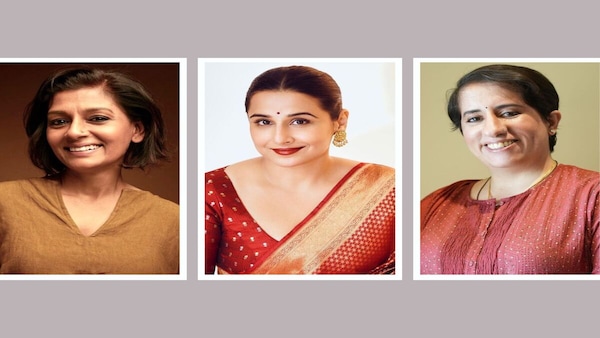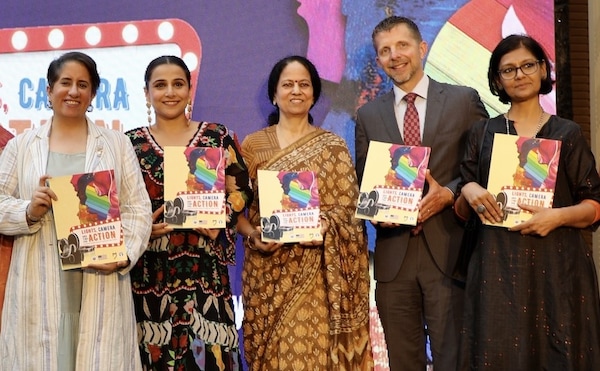Vidya Balan, Nandita Das, and Guneet Monga speak about gender representation in Hindi cinema
A recent report by the TISS found that the on- and off-screen representation of women and queer people in box-office hits remains largely stereotypical

Last Updated: 03.07 PM, Jul 01, 2023
While there has been a change as far as representation goes in films and series, especially after the OTT boom, a recent report by the School of Media and Cultural Studies at the Tata Institute of Social Sciences (TISS), Mumbai, found that the on- and off-screen representation of women and queer people in box-office hits remains largely stereotypical.
The project was funded by The US Consulate General in Mumbai.
Read also: Neeyat teaser: Vidya Balan turns detective, investigates a murder at a billionaire's party
It was only apt that some of the most powerful women in Hindi cinema, namely Vidya Balan, actor-filmmaker Nandita Das, and Oscar-winning filmmaker Guneet Monga, were among the people invited to release the report. They even sat together to discuss this important issue.
Sharing her thoughts on the findings of the study, Vidya Balan said, "When I read the report, I was surprised because the ground reality seemed different to me. I don’t think we have creche facilities yet, but definitely, POSH committees have been instituted on every production that I have been involved in, and I can say that a lot of production houses are following that. As far as more women in cinema go, there has to be a holistic solution to it. I don’t see why it's a bad thing if women directors are hiring women technicians and women heavy crews. Eventually, that will percolate into male-led films as well. I have seen that change with movies like Mission Mangal."
Calling it an important report, Nandita added, "This is a very important report that tells us where we are in terms of representation in Hindi films, both in front and behind the camera. Anecdotally, we may feel we are far better than where we were, but the research and statistics show us that we have a rather long way to go. It is a detailed and thought-through report that needs to be seen by anyone who cares to be part of the change that we want to see in the film industry."

Talking about hurdles for female producers, Guneet Monga, founder of Sikhya Entertainment, lamented, "I absolutely miss a group of producers who are doing independent films. I have seen a lot of them give up after producing one or two. Having produced more than 40 independent films, I think there is a need to have more female producers. Women are incredible at multitasking and are generally able to run the world better."
What the report found
The report found that 72% of characters in the analysed films are played by cis-males, 26% by cis-females, and 2% by queer actors. It also found that 36% of box office hits and 100% of women-centric films passed the Bechdel test (the test checks whether a work features at least two women who talk to each other about something other than a man). The most popular skin tone for female characters is fair skin, and body types are thin for lead characters and medium for all other supporting characters. The work roles of women in employment and in public domain work are gendered, with a greater presence of women in health care, education, entertainment, and journalism. Women-centric films have greater diversity and explore inbound subjects dealing with relationships, sexuality, motherhood, and other sensitivities.
About the report
Studies for the report analysed 25 2019 box-office hits to capture a full year of pre-pandemic theatrical releases, as well as 10 women-centric films released between 2012 and 2019 as a representative sample.
Researchers analysed 15 crucial parameters, such as intersectional representation, occupation, degree of sexual stereotyping, consent and intimacy, and harassment. The studies also analysed women’s participation behind-the-scenes and off-screen.
